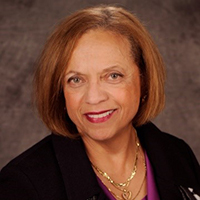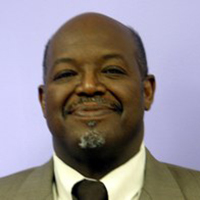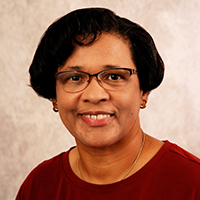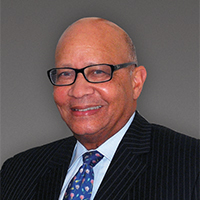- Membership & Community
-
Publications & News
- Journals
-
Newsroom
-
The Physiologist Magazine
- 2019
- 2020
- 2021
- 2022
- 2023
- 2024
- In Depth
-
Mentoring Forum
- Net Worth
- Take Care
- You … In Charge
- Work. It. Out.
- Working Off-site
- Location, Location, Location?
- Student Support
- Progressing to Postdoc
- Relationship Building
- Let’s Get It Started
- What Do We Value?
- It’s a Postdoc Life
- Coronavirus Contributions
- Creative Communications
- Selection Process
- Conference Connections
- Postdoc Appreciation
- Research Rewards
- Focus on Teaching
- Industry Insights
- Balance Beam
- Post Postdoc
- If You Build It
- Talk It Through
- Forward Bound
- I’ve Earned My PhD. Now What?
- University Life
- Tips for Trainees
- Time Travel
- Policy IQ
- Publish with Polish
- Under the Microscope
- Mentoring Q&A
- The Physiologist Magazine Readers Survey
- Evolution
- Baseline by Scott Steen, CAE, FASAE
- Find Us on Social Media
-
The Physiologist Magazine
-
Professional Development
-
Meetings & Events
-
American Physiology Summit
- #APS2024 Overview
- Abstracts
- Awards at the Summit
- Award Lectures
- Career Networking Lunch Form
- Dates and Deadlines
- Hotel Information
- Industry Partners
- Keynote Speaker—Brian Kobilka, MD
- Keynote Speaker—Jessica Meir, PhD
- Mobile App
- NIH and NSF Program Officer Panel Discussion Form
- Off-site Summit Meetups
- Physical Poster Information
- PhysioHub
- Pre-Summit Events
- Registration
- Section & Group Banquet Tickets
- Speaker Audiovisual Instructions
- Summit FAQs
- Summit Newsroom
- Summit Store
- Travel & Transportation
- Undergraduate Program Book
- Liability Waiver
- Summit Call for Proposals
- Industry Partners
- Martin Frank Diversity Travel Award Orientation Agenda
- Martin Frank Diversity Travel Award Networking Luncheon Agenda
- Women in Physiology Networking Event Agenda
-
2023
- APS 2023 Call for Proposals
- Shocklogic Test
- Team 2023 Task Force
- Shaping the Summit
- Schedule at a Glance
- Pre-Summit Events
- Pre-Summit Center for Physiology Education Workshop Registration
- Section & Groups Banquet Tickets
- Summit Store
- Pre-Summit Center for Physiology Education Workshop
- Press Registration
- Meet the Organizers
- Keynote Speaker—Terrie Williams, PhD
- Keynote Speaker—David Julius, PhD
- Industry Workshop Information
- Important Dates and Deadlines
- Hotel Information
- Game Changers
- Distinguished Lecturers
- Building APS 2023
- Awards at the Summit
- 2023 Summit Information
- American Physiology Summit Program
- 2023 Summit Newsroom
- 2024
- Scientific Integrity Policy
- Integrative Physiology of Exercise Conference
- From Concept to Classroom
- Webinars
- Related Meetings
- Future APS Conferences
-
Past APS Conferences
- APS Institute on Teaching and Learning
- Integrative Physiology of Exercise
- Seventeenth International Conference on Endothelin (ET-17)
- New Trends in Sex and Gender Medicine
- APS Institute on Teaching and Learning (2022)
- Control of Renal Function in Health and Disease Conference
- Comparative Physiology: From Organisms to Omics in an Uncertain World
- Conference Policies
-
American Physiology Summit
- Awards
-
Career & Professional Development
-
Career Gateway
-
Resources
- Transcript—Leading Through Conflict and Difficult Conversations
- Transcript—Managing Conflict with Colleagues
- Transcript—Leading a Team Through Conflict
- Transcript—Providing Difficult Feedback
- Transcript—Team Dynamics and Culture Primer
- Transcript—Building a Team
- Transcript—Leading a Team Assigned to You
- Transcript—Creating a Team Culture
-
Resources
- Career Navigator
- Center for Physiology Education
- Job Board
- Mentoring
- APS Graduate Physiology & Biomedical Science Catalog
-
Career Gateway
-
Meetings & Events
-
Advocacy & Resources
- Policy Areas
-
Resources
- Researcher Resources
- Educator Resources
- Trainee Resources
- Student Resources
-
APS Graduate Physiology & Biomedical Science Catalog
- Augusta University
- Des Moines University
- East Tennessee State University
- George Washington University
- Louisiana State University Health Sciences Center Shreveport
- Mayo Clinic Graduate School of Biomedical Sciences—Biomedical Engineering & Physiology
- Medical College of Wisconsin
- Michigan State University
- New York Medical College
- Nova Southeastern University
- Pennsylvania State University
- Saint Louis University
- Texas A&M University
- Texas A&M University Medical Physiology
- Stony Brook University
- The University of Iowa
- The University of Mississippi Medical Center
- University of Alabama at Birmingham
- University at Buffalo
- University of Colorado
- University of Delaware
- University of Florida
- University of Louisville
- University of Michigan
- University of Minnesota
- University of Missouri-Biomedical Sciences
- University of Nebraska Medical Center
- University of Oregon
- University of South Carolina School of Medicine
- University of Tennessee Health Science Center (UTHSC)
- University of Texas Health Science Center
- Virginia Commonwealth University
- Wayne State University
- Wake Forest University
- Physiology Department Catalog Submission Form
- Career Gateway
- Diversity, Equity & Inclusion
- Advocacy
- About APS
APS Members: Watch On-demand
During Black History Month, APS celebrates achievements of Black physiologists. This webinar will focus on Black researchers who have made contributions to physiology but who may not have been visible despite their leadership in academia, research and mentorship. Speakers will share personal stories and highlight contributions to physiology and medicine by APS members from diverse racial and ethnic backgrounds.
Corey Reynolds, PhD, will give a historical perspective of APS awards in physiology and a general overview of the meaning behind hidden figures.
Moderator
 Corey L. Reynolds, PhD, is a native of Tennessee, where he graduated from Tennessee State University and, earned a doctorate in physiology and biophysics at the University of Louisville. Reynolds is active in APS having served on the Porter Physiology Development & Minority Affairs Committee (now known as the Diversity, Equity & Inclusion Committee). He is a member of the Animal Care & Experimentation Committee. Reynolds works for Merck on the cardiovascular and metabolism team as a regional medical scientific director.
Corey L. Reynolds, PhD, is a native of Tennessee, where he graduated from Tennessee State University and, earned a doctorate in physiology and biophysics at the University of Louisville. Reynolds is active in APS having served on the Porter Physiology Development & Minority Affairs Committee (now known as the Diversity, Equity & Inclusion Committee). He is a member of the Animal Care & Experimentation Committee. Reynolds works for Merck on the cardiovascular and metabolism team as a regional medical scientific director.
Panelists
 Pamela Gunter-Smith, PhD, is president of York College of Pennsylvania. She previously served as the provost and academic vice president of Drew University in New Jersey and was the Porter professor of physiology at Spelman College in Atlanta. She holds a bachelor's degree in biology from Spelman College and a doctoral degree in physiology from Emory University. Gunter-Smith has served on numerous committees that address science education and the underrepresentation of minorities in science. She is president of the William Townsend Porter Foundation and serves on the board of directors of the National Association of Independent Colleges and Universities. Gunter-Smith is a former APS Porter Fellow (1973-1976).
Pamela Gunter-Smith, PhD, is president of York College of Pennsylvania. She previously served as the provost and academic vice president of Drew University in New Jersey and was the Porter professor of physiology at Spelman College in Atlanta. She holds a bachelor's degree in biology from Spelman College and a doctoral degree in physiology from Emory University. Gunter-Smith has served on numerous committees that address science education and the underrepresentation of minorities in science. She is president of the William Townsend Porter Foundation and serves on the board of directors of the National Association of Independent Colleges and Universities. Gunter-Smith is a former APS Porter Fellow (1973-1976).
 Irving Joshua, PhD, is a professor and the chairman of the department of physiology at the University of Louisville. He has been involved in scientific research and teaching of professional and graduate students for over 40 years. For the last 30 years, he has directed an NIH support summer research training and mentoring program for underrepresented minority undergraduates. Joshua’s research has dealt with cardiovascular changes associated with cardiovascular diseases. Joshua is the past president of the Association of Chairs of Departments of Physiology and a former Councilor of APS.
Irving Joshua, PhD, is a professor and the chairman of the department of physiology at the University of Louisville. He has been involved in scientific research and teaching of professional and graduate students for over 40 years. For the last 30 years, he has directed an NIH support summer research training and mentoring program for underrepresented minority undergraduates. Joshua’s research has dealt with cardiovascular changes associated with cardiovascular diseases. Joshua is the past president of the Association of Chairs of Departments of Physiology and a former Councilor of APS.
 Evangeline Motley-Johnson, PhD, is interim dean of the School of Graduate Studies and Research and a professor in the department of microbiology, immunology and physiology at Meharry Medical College in Nashville. She obtained her doctorate degree in physiology and biophysics from Howard University in Washington D.C., and completed postdoctoral training at the University of Cincinnati in Ohio. She has served on the APS Porter Physiology Development Committee and is an advocate for increasing the number of underrepresented minorities pursuing scientific careers in physiology at Historically Black Colleges and Universities. Motley-Johnson is a former APS Porter Fellow (1989-1990).
Evangeline Motley-Johnson, PhD, is interim dean of the School of Graduate Studies and Research and a professor in the department of microbiology, immunology and physiology at Meharry Medical College in Nashville. She obtained her doctorate degree in physiology and biophysics from Howard University in Washington D.C., and completed postdoctoral training at the University of Cincinnati in Ohio. She has served on the APS Porter Physiology Development Committee and is an advocate for increasing the number of underrepresented minorities pursuing scientific careers in physiology at Historically Black Colleges and Universities. Motley-Johnson is a former APS Porter Fellow (1989-1990).
 Nathaniel G. Pitts, PhD, is a retired National Science Foundation (NSF) senior executive. He received a doctorate degree in neurophysiology from the University of California, Davis, worked at Rockefeller University in New York and was acting director of the division of behavioral and neural sciences, and director of the Office of Science and Technology Infrastructure and director of the Office of Integrative Activities at NSF. Pitts served on the NSF Director’s Policy Group, represented the White House Office of Science and Technology Policy to the Federal Demonstration Partnership, and was chair of the Academic Research Infrastructure Sub-Committee for the White House National Science and Technology Council. He also served as a science advisor for Senator Edward M. Kennedy. Pitts is a former APS Porter Fellow (1972-1973).
Nathaniel G. Pitts, PhD, is a retired National Science Foundation (NSF) senior executive. He received a doctorate degree in neurophysiology from the University of California, Davis, worked at Rockefeller University in New York and was acting director of the division of behavioral and neural sciences, and director of the Office of Science and Technology Infrastructure and director of the Office of Integrative Activities at NSF. Pitts served on the NSF Director’s Policy Group, represented the White House Office of Science and Technology Policy to the Federal Demonstration Partnership, and was chair of the Academic Research Infrastructure Sub-Committee for the White House National Science and Technology Council. He also served as a science advisor for Senator Edward M. Kennedy. Pitts is a former APS Porter Fellow (1972-1973).


